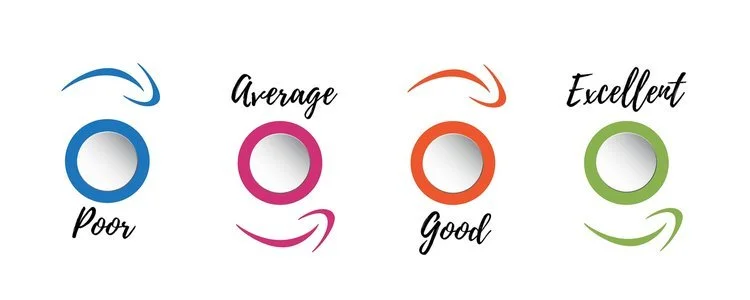Judging Presidential Judgment
“I’d rate it a 10. I think we’ve done a great job.”
This was President Trump’s self-rating on March 16th on his response to COVDI19, on a scale of 1 to 10. He had declared a national emergency on March 13. He has signed two relief bills and a massive stimulus package. He has issued guidance, engaged the private sector’s help, and used military resources to address the pandemic. Almost daily, he speaks about actions taken. Yet these efforts since the pandemic’s spread must be weighed in with judgments he made earlier. Sound judgment requires foresight, reason, and prudence, which were not in evidence earlier in the pandemic’s spread.
Judgment: Pandemic planning is not a high priority. Poor judgment, by three presidents, contributed to the current crisis. Robert Kadlec, a physician who held senior positions under Presidents George W. Bush and Barack Obama started warning of our lack of biodefense preparedness in 1998. In his three years in office, President Trump also failed to respond, even after an early 2019 interagency/intergovernmental pandemic simulation, “Crimson Contagion.” It assumed a virus originating in China for which no vaccine exists. Its conclusion: the nation is woefully unprepared, lacks medical resources, a robust medical supply chain and sound coordination and mitigation measures across levels of government. Yet on March 18th, the president claimed of the virus: “It snuck up on us . . . a very unforeseen thing.”
In 2018 the administration cut the global disease-fighting operational budgets of the CDC, NSC, DHS, and HHS and eliminated the $30 million Complex Crises Fund. It also moved to shut down the NSC’s entire global health security unit and cut the budget of CDC’s Global Health unit.
Judgment: We can take our time. The first U.S. case of COVID19 was diagnosed on January 21st. Six weeks later, on February 26th, the president said "the 15 [cases], within a couple of days, is going to be down to close to zero." The president downplayed the danger, despite evidence from China. This led to overconfidence and tragically delayed our response.
Judgment: We are ready. On February 28th, the president said “We are magnificently organized with the best professionals in the world. . . . We are ready. Totally ready.” A month later, we still have a glaring incapacity to test Americans, though experience elsewhere demonstrates early testing, isolation of infected individuals, and quarantining those they came in contact with are the only means to slow the virus’s spread. The rate of testing per one hundred thousand people in the U.S. in late March was under 200, compared to over 700 in South Korea. Most Americans still cannot get a test unless they are already very ill.
Essential social distancing, including shutting down much of the economy, is the price we are paying for inadequate testing. South Korea never had to do this. We are also woefully short of protective masks, ventilators, and critical care hospitals beds.
Judgment: This disease is like the flu. On March 9th, the president likened COVID19 to the flu in its impact: “So last year 37,000 Americans died from the common Flu. It averages between 27,000 and 70,000 per year. Nothing is shut down, life & the economy go on. At this moment there are 546 confirmed cases of CoronaVirus, with 22 deaths. Think about that!” Yet COVID19 has a mortality rate at least ten times higher and fills critical care hospitals beds at much greater rates. Unlike the flu, we have neither vaccine nor proven medical treatments. The assumption that we were dealing with something like the flu also delayed our response.
Judgment: There are drugs.
On March 21st the president said “HYDROXYCHLOROQUINE & AZITHROMYCIN, taken together, have a real chance to be one of the biggest game changers in the history of medicine.” There is as yet no scientific validity for this. On March 19th he claimed about these drugs for COVID19 “it’s now approved by prescription.” It was not (though hyrdoxycholoroquine now is, although controlled studies have yet to prove its effectiveness). The result was a run on these drugs by doctors writing prescriptions for themselves and their families and a potential shortage for Americans suffering from malaria, lupus and rheumatoid arthritis, for which these drugs are effective. Prudence should have dictated a more cautious approach.
Judgment: America must get back to work. On March 24th the president said “"I would love to have the country opened up and just raring to go by Easter.” On March 29th, he revised this date to April 30th , based on new disease projections. Dr. Anthony Fauci, director of the National Institute of Allergy and Infectious Diseases, labeled this a “wise and prudent decision.” The process of returning to “normal” in American life must be based on the best possible evidence. The president is now approaching this more carefully, since an arbitrary date or false hope could encourage people to assume they can safely return to normal, increasing the spread of COVID19.
No president can be expected to have perfect judgment. But all presidents have the responsibility to exercise foresight, reason, and prudence in their decisions. That goes for those they lead as well. We should judge them – and ourselves – against this standard.
Photo Credit: Library of Congress







